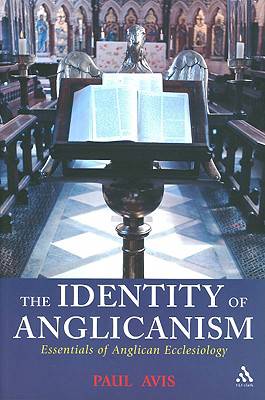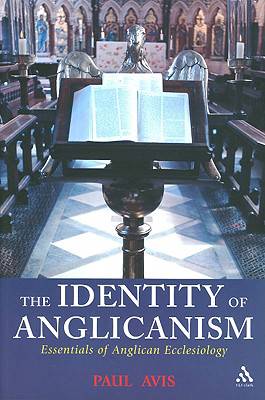
Bedankt voor het vertrouwen het afgelopen jaar! Om jou te bedanken bieden we GRATIS verzending (in België) aan op alles gedurende de hele maand januari.
- Afhalen na 1 uur in een winkel met voorraad
- In januari gratis thuislevering in België
- Ruim aanbod met 7 miljoen producten
Bedankt voor het vertrouwen het afgelopen jaar! Om jou te bedanken bieden we GRATIS verzending (in België) aan op alles gedurende de hele maand januari.
- Afhalen na 1 uur in een winkel met voorraad
- In januari gratis thuislevering in België
- Ruim aanbod met 7 miljoen producten
Zoeken
€ 88,45
+ 176 punten
Omschrijving
Anglicanism can be wonderful, mystifying and infuriating. For some it is an expression of the Church catholic, going back to the early Church and the apostles. For others it is a pragmatic compromise dating from Henry VIII's dynastic ambitions. Some see Anglicanism today as self-destructing, torn apart by internal pressures.
Paul Avis expounds an Anglicanism that is both catholic and reformed and open to fresh insight. On this interpretation, what is distinctive about Anglicanism is its understanding of the Church and of authority. These issues are addressed in relation to the origins of Anglican ecclesiology, the diversity and coherence of the worldwide Anglican Communion, its understanding of baptism and the Eucharist, the question of women priests and bishops, its ecumenical engagement and the internal conflicts of the early twenty-first century. This is a authoritive and passionate vindication of classical Anglicanism, evolving to respond to contemporary challenges.
Paul Avis expounds an Anglicanism that is both catholic and reformed and open to fresh insight. On this interpretation, what is distinctive about Anglicanism is its understanding of the Church and of authority. These issues are addressed in relation to the origins of Anglican ecclesiology, the diversity and coherence of the worldwide Anglican Communion, its understanding of baptism and the Eucharist, the question of women priests and bishops, its ecumenical engagement and the internal conflicts of the early twenty-first century. This is a authoritive and passionate vindication of classical Anglicanism, evolving to respond to contemporary challenges.
Specificaties
Betrokkenen
- Auteur(s):
- Uitgeverij:
Inhoud
- Aantal bladzijden:
- 216
- Taal:
- Engels
Eigenschappen
- Productcode (EAN):
- 9780567032041
- Verschijningsdatum:
- 28/04/2008
- Uitvoering:
- Hardcover
- Formaat:
- Ongenaaid / garenloos gebonden
- Afmetingen:
- 161 mm x 233 mm
- Gewicht:
- 340 g

Alleen bij Standaard Boekhandel
+ 176 punten op je klantenkaart van Standaard Boekhandel
Beoordelingen
We publiceren alleen reviews die voldoen aan de voorwaarden voor reviews. Bekijk onze voorwaarden voor reviews.









